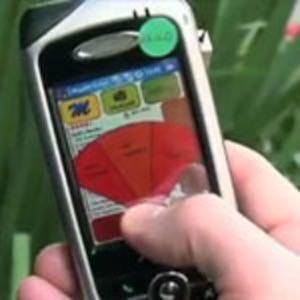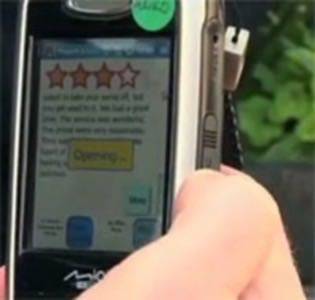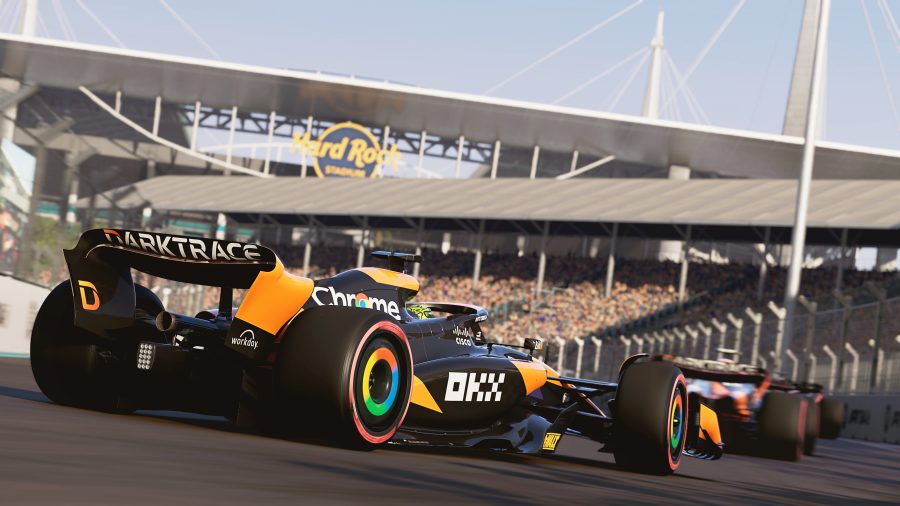On a trip to Silicon Valley last month, I had the pleasure of visiting the famous PARC campus (Palo Alto Research Center, formally Xerox PARC). One of the people I spoke to was Bo Begole, Principal Scientist and Manager of PARC’s Ubiquitous Computing Area.

Begole showed me an app that brings the concept of ‘ubicomp’ to a commercial reality. Magitti is a next generation location-based mobile app, currently in commercial trials in Japan. It goes further than popular apps like Foursquare and Gowalla. As well as using GPS data to figure out where you are, Magitti computes a user’s preferences and context. It then makes recommendations of near-by places to go, based on that personal data. Location has been one of the biggest trends in 2010 and Magitti is one probable future of such apps, so let’s check it out.
Firstly, you may be wondering what Ubiquitous computing means – or ubicomp for short. It’s when anything and everything is connected to a computer network. It’s basically the same concept as Internet of Things, the term we use frequently on ReadWriteWeb. Ubicomp ties into the current big trend of location apps, because places and buildings are being connected to the Internet through mobile phones.
The term “ubiquitous computing” was coined by Mark Weiser in about 1988, when he was Chief Technologist of PARC. He went on to define and research the topic, with then PARC Director and Chief Scientist John Seely Brown. So PARC has a lot of history with this technology.

I started off by asking Bo Begole what PARC is doing now in the area of ubiquitous computing. It turned out to be an interesting back-story to how Magitti was developed. Begole said that it’s now a “different generation of Ubiquitous Computing.” He explained:
“The guys in early PARC were working on prototypes of the hardware that was necessary in the wireless networking, [but] all that you can buy today off the shelf. So now, we’re focused more on software and services that leverage the ubiquity of the computing devices around [today] and the traces that people leave as they interact with digital media – and physical media too – that can be detected with sensors, cameras, microphones, and things like that.”
A big push currently in Begole’s group at PARC is predictive analytics. He explained that “the evolution of context awareness has taken us from the early days where services would be triggered by a change in the physical environment, like somebody walking into a room, to predicting your future needs and trying to proactively provide information services.”
So what kinds of applications is PARC building? Begole replied that “some are for mobile devices and use sensors on those devices, others use sensors embedded in the environment.”
He then introduced me to Magitti, developed for a Japanese company. It’s a mobile recommender service that recommends outdoor leisure activities to you based on your current time and location. More than that, it accounts for the user’s “digital situation as identified by messages they’ve been exchanging or documents they’ve been looking at.”
Begole explained that the app infers the user’s likely leisure activity and then helps partition the types of information they’d be interested in. Here’s a demo of the product:
“So within each information type,” Begole continued, “we’re going to filter and rank that and give them a prioritized list of recommendations for things in the area that they would like. So it’s beyond just location-based search.”
Begole also noted that PARC is combining multiple sources of information, not just sensors.
“At PARC, we have a natural language parsing technology and we’ve got image content analysis. We bring all those together to create what I call a “Personal Semantic Network” that identifies the relationships between all the kinds of objects you interact with. And it’s not just that the associations exist, but what’s the meaning of those associations? So for example, in terms of Ubicomp stuff, you can detect that somebody has visited the location. But we want to take it another step further. Not just that they’ve been at that location, but is that their home? Is that where they work? Is that a client of theirs, a place they like to shop? Those kinds of things.”
Magitti is currently in trials in Japan, one of the most advanced Mobile Web nations on earth.
What do you think: will Foursquare, Gowalla and of course Facebook introduce similar functionality soon? Or will it need an advanced app like Magitti to move location apps to the next level?





















